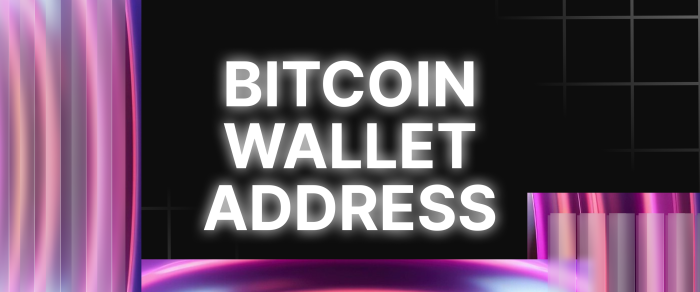Top 8 Bitcoin Lightning Network Wallets for 2024
In the world of cryptocurrencies, Bitcoin has long been hailed as the king. However, its journey towards mainstream adoption has been hindered by scalability issues and high transaction fees. Fortunately, the Lightning network, a second-layer payment protocol, has emerged as the solution to these challenges.
In this article, we will delve into the 8 best Bitcoin Lightning wallets that are leading the charge in 2024. These wallets offer a diverse range of features and advantages, from user-friendly interfaces to advanced security measures.
Key Takeaways:
- The Lightning network is a second-layer payment protocol built on top of the Bitcoin blockchain.
- Lightning Bitcoin wallets support faster and cheaper transactions compared to on-chain BTC transactions.
- Some of the best wallet options include Wallet of Satoshi, Strike, Breez Mobile, Phoenix, and others.
1. Wallet of Satoshi – Top Lightning Wallet
Wallet of Satoshi is a highly regarded custodial Lightning wallet that focuses on simplicity and ease of use. This mobile-only service offers a straightforward interface, making it perfect for new users looking to explore the benefits of the network.
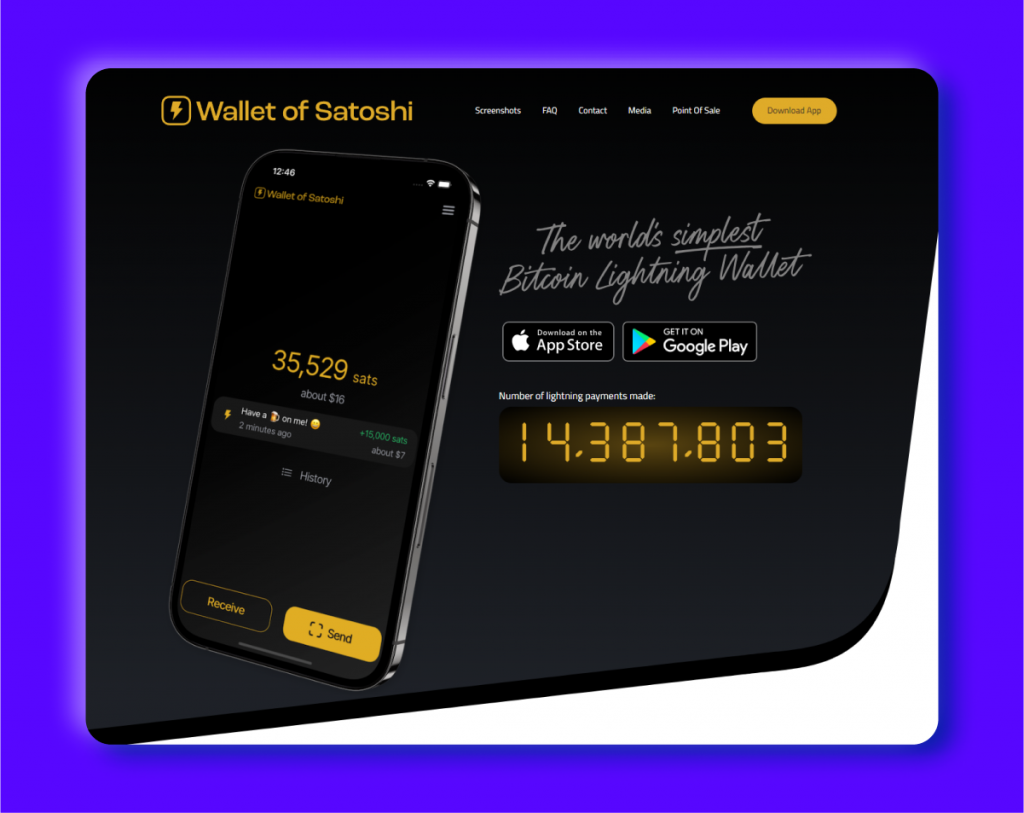
One of the standout features of Wallet of Satoshi is its built-in fiat-to-crypto gateway, allowing users to purchase Bitcoin directly within the wallet. The app partners with MoonPay to facilitate these purchases, providing seamless functionality. However, it’s worth noting that MoonPay charges a fee for its services.
In terms of security, Wallet of Satoshi utilizes a multi-signature technology, ensuring that funds are stored in a secure environment. The wallet also offers 2F authentication and biometric login, adding an extra level of security for users.
Key Features:
- Convenient and easy-to-use application
- Fiat-to-crypto getaway
- POS supported
Verdict: Overall, Wallet of Satoshi is an excellent choice for users looking for a simple and beginner-friendly BTC-only Lightning application with rich capabilities.
2. Breez Mobile – Best Mobile Option
Breez Mobile is a mobile-only Lightning wallet that aims to make Lightning payments as easy and hassle-free as possible. This wallet features an easy-to-use interface, making it perfect for use on the go.
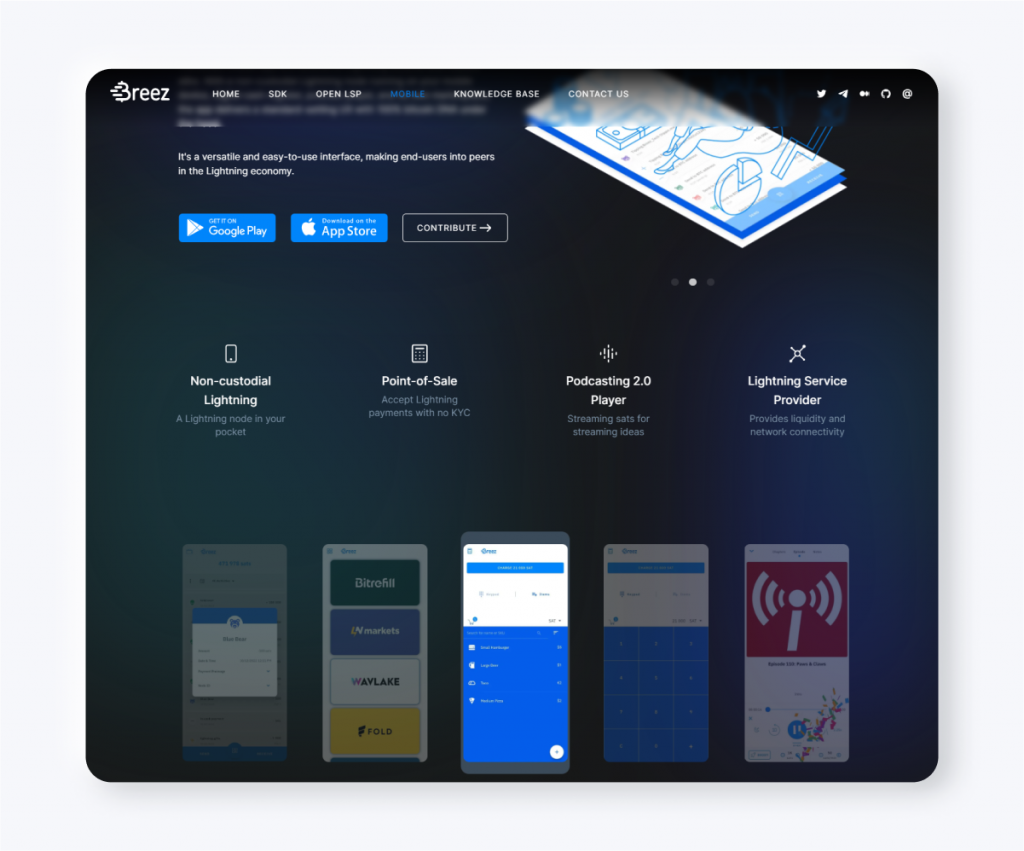
One of Breez’s greatest strengths is its intuitive POS system, which boasts a large keypad and the ability to swap between display currencies. This feature makes it an ideal choice for businesses looking to accept Lightning network payments efficiently.
Moreover, Breez has its own Lightning routes, resulting in slightly varying Lightning network fees from competitors. Currently, the platform charges 0.4% for creating new channels with a minimum fee of 2,500 SATs. For Lightning transactions, a one SAT fee is added in addition to a variable routing fee.
Key Features:
- Intuitive POS system
- Integration with various dApps
- Simple and efficient Lightning transactions
Verdict: With its user-friendly interface and advanced features, Breez is a top choice for businesses and individuals looking to make the most of the Lightning transfers. Its direct integration with dApps adds an extra layer of functionality, making it a versatile option for all types of users.
3. Strike – Best for Debit Card Payments
Available as a browser extension, as well as on mobile platforms, Strike by Zap is a well-known non-custodial Bitcoin wallet. It focuses on providing a seamless experience for users looking to make instant Bitcoin Lightning payments using their debit card or bank account. This has been made possible through partnerships with Visa and Bittrex Global, allowing Strike users to send payments to over 200 countries worldwide.

Strike offers a unique feature that allows users to connect their traditional bank accounts and make Lightning payments directly from them. This makes it an ideal choice for those looking for a bridge between the traditional financial system and Bitcoin’s Lightning capabilities.
Another notable feature of Strike is its low KYC verification requirements. Users only need to provide their name and phone number to start using the app, making it a great option for those looking for convenience.
Key Features:
- Debit card payment option
- Non-custodial wallet with user-controlled private keys
- Limited KYC verification requirements
Verdict: Strike is a top choice for users seeking to use their BTC for everyday purchases with the added convenience of a debit card. Its simple design and low KYC requirements make it an attractive option for beginners and advanced users alike.
4. Blue Wallet – Secure Mobile Option
Blue Wallet is another popular non-custodial Bitcoin Lightning wallet available on smartphone devices. With its focus on security, Blue Wallet offers users complete freedom to manage transactions and private keys.
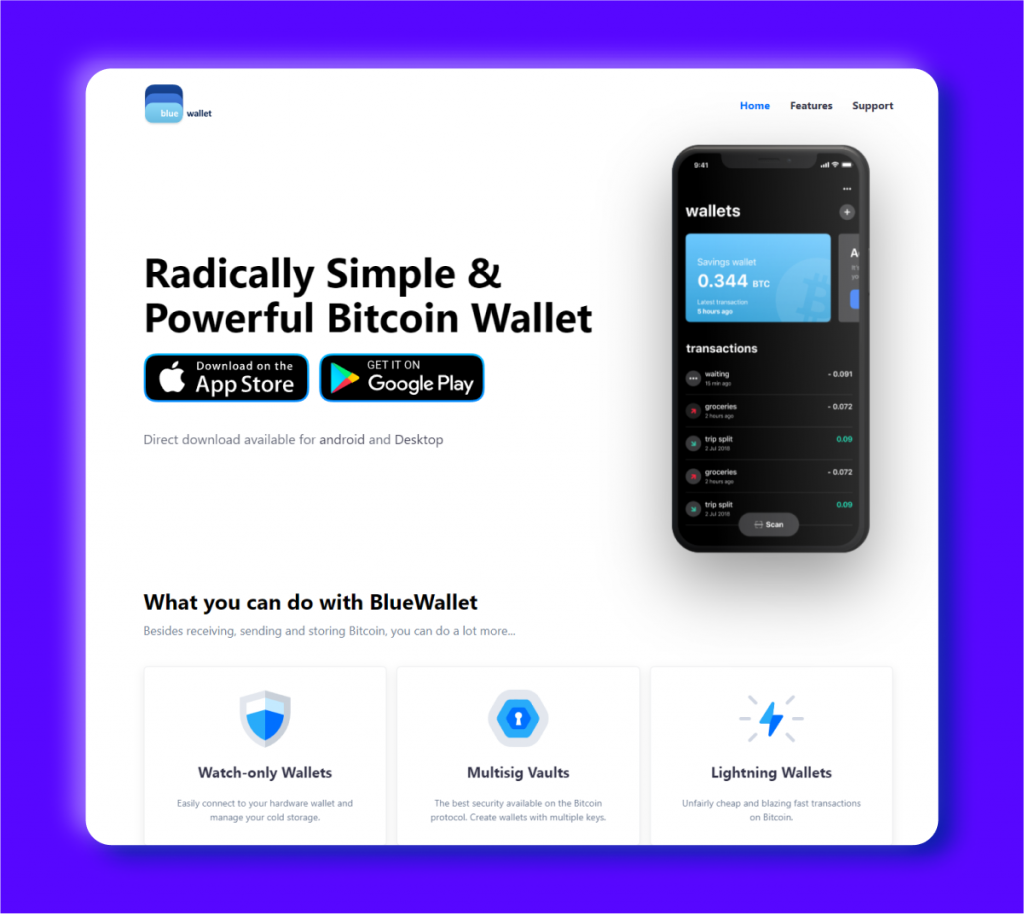
One of the standout features of Blue Wallet is the ability to create multiple wallets within the app, making it a great choice for portfolio management. Users can create separate wallets for Lightning, on-chain, and savings, adding flexibility to their transactions.
On the downside, using Blue Wallet’s channels and lightning node can result in hefty fees of up to 1% per transaction. However, users can mitigate these fees by setting up their own node and payment routes within the app.
Key Features:
- Non-custodial and highly secure
- Multiple wallet options for portfolio management
- Ability to set up personal nodes and payment routes
Verdict: Despite the high fees associated with using its lightning node, Blue Wallet is a solid choice for those looking for a non-custody mobile Bitcoin wallet for Lightning transactions with advanced features.
5. Electrum – Best for Advanced Users
Electrum is a well-established Bitcoin wallet that has been around since 2011. It is known for its robust security features and wide range of functionalities. While Electrum primarily operates as an on-chain Bitcoin wallet, it also supports Lightning network transactions.
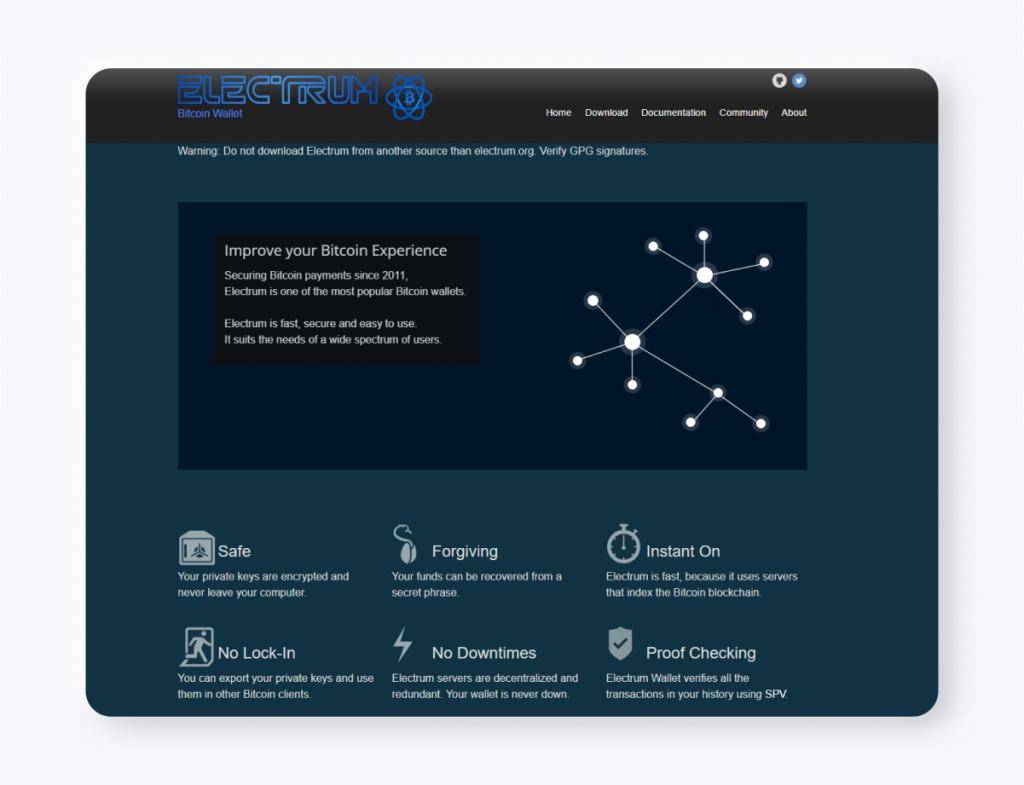
Unlike some Lightning wallets, which require personal information for registration, Electrum operates completely anonymously. This makes it a top choice for privacy-minded individuals who want to keep their transactions discreet.
One of the major advantages of Electrum is its control over transaction fees. Users can manually set network fees for on-chain transactions, providing flexibility and control over how fast their transactions are confirmed. However, this feature is not available for Lightning payments, as fees are determined by network conditions and routing.
It’s worth noting that Electrum is more suited for experienced users due to its slightly complex interface and manual input requirements. But once you get the hang of it, it offers great customizability and control over your Bitcoin transactions.
Key Features:
- High level of anonymity
- Customizable transaction fees
- Secure multi-signature technology
Verdict: If you’re an experienced Bitcoin user looking for a Lightning wallet that offers flexibility and control over fees, Electrum is a top contender. However, it may require some time to get accustomed to its interface.
6. Muun – A Beginner’s Gateway to Lightning Payments
For those looking for a straightforward and no-frills Lightning wallet, Muun is the perfect choice. This mobile wallet offers a minimalist design with a focus on processing payments on the Lightning network.
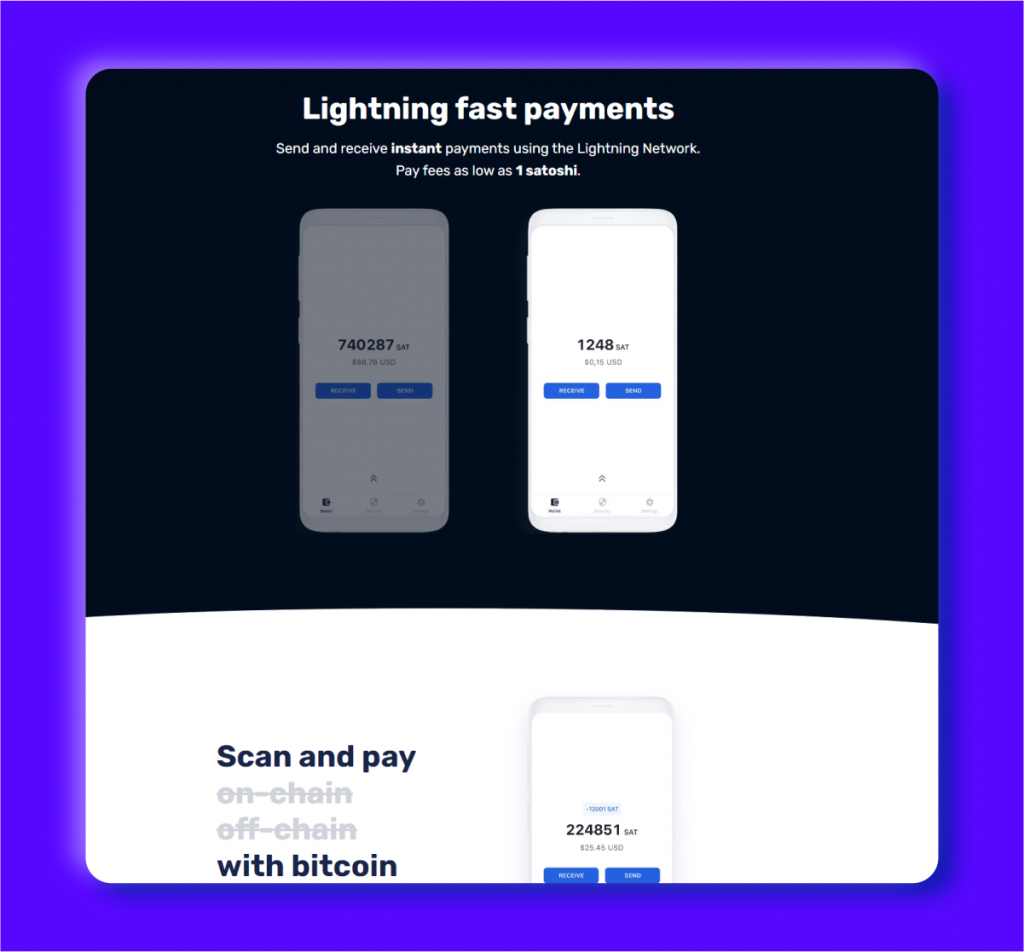
Muun’s standout feature is its ability to switch between transacting on Lightning or on-chain Bitcoin. This flexibility is useful for users who want to quickly send BTC to multiple addresses without having to switch wallets.
In terms of fees, Muun charges a few SATs for most transactions, similar to other Lightning wallets. However, the wallet may charge higher fees when automatically opening new payment channels on behalf of the user.
While Muun does not offer advanced features like staking or support for multiple assets, it does have a security center that provides basic guidance on securing funds. This information may be beneficial for beginners looking to enhance their security practices.
It is worth mentioning that Muun is a custodial wallet, so it does not provide users with access to their private keys.
Key Features:
- Basic and easily usable Lightning wallet
- Flexibility to transact on both Lightning and BTC networks
- Security center for basic guidance on securing funds
Verdict: Muun Wallet is a great entry point into the world of Bitcoin and Lightning payments, perfect for those looking for an easy-to-use solution. However, users seeking advanced features may want to explore other options.
7. Exodus – Best for Wide Range of Features
Exodus is a popular multi-currency wallet that has earned its spot on our list for its comprehensive features and compatibility with Lightning payments. Available on both mobile and desktop, this all-in-one wallet offers a range of services not commonly seen on other wallets, such as NFT support, swaps, a staking platform, and a fiat on-ramp.

However, it’s worth noting that Lightning payments are only available on the mobile version of Exodus. Additionally, for its Lightning wallet, Exodus has partnered with Wallet of Satoshi. While this allows for easy fund transfers between the two wallets, there is a 0.3% fee and an additional 5,000 satoshi fee for withdrawals.
Exodus supports a whopping 346 coins, including popular crypto assets like Bitcoin, Ethereum, and XRP. However, for Lightning transactions, there is a $100 limit on BTC transfers into the Exodus Lightning wallet hosted by Wallet of Satoshi. While this may not be an issue for most users, it could discourage those looking for a more native integration or wanting to minimize costs.
Key Features:
- Multi-currency support
- NFT and staking capabilities
- Fiat on-ramp with 32 currencies
Verdict: With its rich features, Exodus is a top choice for users looking for an all-in-one wallet solution. However, it’s important to consider the various fees associated with using Lightning on this platform.
8. Phoenix Wallet – The Non-Custodial Alternative
For those who prioritize security, Phoenix Wallet is an excellent option. This non-custodial Lightning wallet delivers fast and secure transactions, making it a popular option among privacy-conscious users.

Unlike custodial wallets that automatically create payment channels, Phoenix allows users to manually open channels or use the built-in function to automatically open them. It should be noted that while automatic channel creation is convenient, it comes at a cost – 1% of the transaction value with a minimum of 3,000 SAT.
One of the standout features of Phoenix Wallet is its ease of use. The wallet’s intuitive interface makes it accessible to users of all experience levels, allowing them to transfer Lightning payments with ease. Phoenix Wallet also supports non-Lightning Bitcoin transactions for added convenience.
In terms of security, Phoenix Wallet ensures that users have complete access to their funds and private keys. The wallet’s emphasis on user control and privacy makes it a reliable choice for users seeking a secure Lightning wallet.
Key Features:
- Non-custodial and highly secure
- Exclusive support for Bitcoin
- Detailed channel management and cost breakdowns
Verdict: Phoenix Wallet is a Lightning network wallet app for those looking for maximum security in their Lightning operations, but it may not be suitable for those seeking a multi-currency solution or advanced features.
What Is Bitcoin Lightning?
The Lightning network is a second-layer payment protocol built on top of the Bitcoin blockchain. It was developed to address the scalability issues of Bitcoin, which often results in slow and expensive transactions.
How Do Lightning Transactions Work?
When two users want to transact with each other, they open a payment channel by creating a funding transaction on the Bitcoin blockchain. This funding transaction locks a certain amount of BTC into the channel. Once the channel is open, the users can transact with each other by updating the channel’s balance off-chain. The final balances are settled on the Bitcoin blockchain when the channel is closed.
Closing Thoughts
Bitcoin Lightning is a new step in the direction of mainstream adoption of Bitcoin blockchain. With its ability to facilitate fast and low-cost payments, the Lightning network offers a scalable solution for Bitcoin users.
When choosing a Lightning wallet, consider your priorities – whether it’s simplicity, security, or portfolio management tools. Remember, while Lightning network wallets offer convenience and speed, it’s crucial to ensure the security of your funds. Take appropriate measures to protect your private keys and follow best practices for securing your BTC.
FAQs
Can I use any wallet for Bitcoin Lightning operations?
No, not all wallets support Lightning transactions. While some established and reputable crypto wallets do have Lightning functionality, it is important to check with the specific wallet provider.
Are there any risks associated with the Lightning network?
Lightning is a relatively new technology, and as such, it does come with some risks. One of the main concerns is that it could potentially replicate the centralized hub-and-spoke model that dominates today’s financial systems. In theory, certain businesses or individuals who invest in Lightning nodes may become hubs or central points for transactions, similar to how banks and financial institutions currently operate.
Additionally, there is always a risk of fraud on any network or platform. While Lightning does have safeguards in place to prevent fraudulent activity, there is still the possibility for it to occur.
Hacks and security breaches are also a concern with any technology. While BTC Lightning does have advanced security measures in place, there is always a risk that it could be compromised.
Which wallet has the lowest fees?
Electrum is a popular and well-regarded option for low-fee Lightning operations by allowing users to set up custom nodes and routes. Other wallets that offer low fees include Strike and Breez.
How much BTC is on the Lightning Network?
According to The Block’s on-chain data, as of December 2023, there is over 5.18 BTC (equivalent to $220 million) currently present on the Lightning Network. This number may vary due to constant changes in the value and volume of Bitcoin being transacted on the network.


